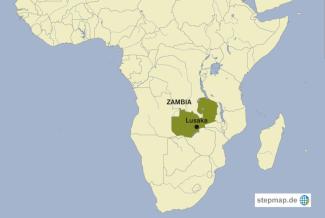Education
Learning the Chinese way

Over 600 Chinese companies operate in Zambia, mostly in the Copperbelt region and mainly to serve Chinese mining companies, according to Global Risk Insights, a political risk analysis firm.
As of December 2020, Zambia owed the Chinese government more than US$ 23 billion in loans, used for projects and infrastructure building, it adds, noting that this debt creates a risk of economic dependence. On the other hand, Zambia benefits mightily from the growing Chinese presence – not only in terms of jobs and increased economic activity, but also in the development of its people’s skills and expertise.
China’s economic projects in Zambia (and other nations) depend in part on enabling good communication between Chinese and local people. Education and training programmes are therefore a major support pillar for the Chinese presence in Zambia and elsewhere.
Thus, it is no accident that China is the largest single provider of university scholarships to students from Sub-Saharan Africa. China awarded 12,000 of the 30,000 scholarships given by the world’s top 50 donor countries, according to UNESCO’s 2020 Global Education Monitoring Report.
Beijing awards about 800 scholarships each year to Zambians to study in China In all, more than 3,500 Zambian students are currently enrolled in a wide range of degree programmes in China, making China the favorite destination for Zambian students wishing to study abroad. One of the recipients, Moffat Chifita, recently completed a music degree in China. “I am now living my dream after studying in China,” he says. “This experience will definitely shape my music career.”
China also sponsors study programmes for Zambian students in their own country. The Confucius Institute at the University of Zambia, a Chinese government educational and cultural organisation, has provided Chinese language classes to over 8,000 local students since its establishment in 2010. It also runs cultural programmes and promotes bilateral cultural exchanges.
Thandiwe Chaaba, an executive at the Chinese-owned Hongsen Company in Zambia, which recycles plastic waste into household products, studied Mandarin at the Confucius Institute. In addition to providing jobs for locals, Hongsen has taught Zambians important skills, she says. “This plant was among the first to use a certain plastic recycling technology in Zambia. Employees and managers have learned the value of this equipment and how to use it.”
Specific job training is another important element of China’s educational outreach. In the past three years, over 1,500 Zambians including government officials, technicians, scholars, businessmen and journalists have received work-related training in China.
Others have been trained at Chinese-owned enterprises within Zambia. Fredrick Sashi, administrative manager of the Zhongyang Eco-Agriculture Industry Park east of Lusaka, participated in such a programme. “I was trained by my Chinese managers,” says Sashi. “It’s an excellent experience to be entrusted after training with managing the company on behalf of its foreign owners.”
China’s education and training programmes in Zambia are only one element of a much larger network of economic projects. Large Chinese industrial and infrastructure projects in Zambia include the building of new milling plants, the Lower Kafue Gorge Hydropower Plant and the new Ndola International Airport. Building up a large group of Chinese-trained Zambians can help to ensure these projects run smoothly.
Derrick Silimina is a freelance journalist based in Lusaka. He focuses on Zambian agriculture and sustainability issues.
derricksilimina@gmail.com







